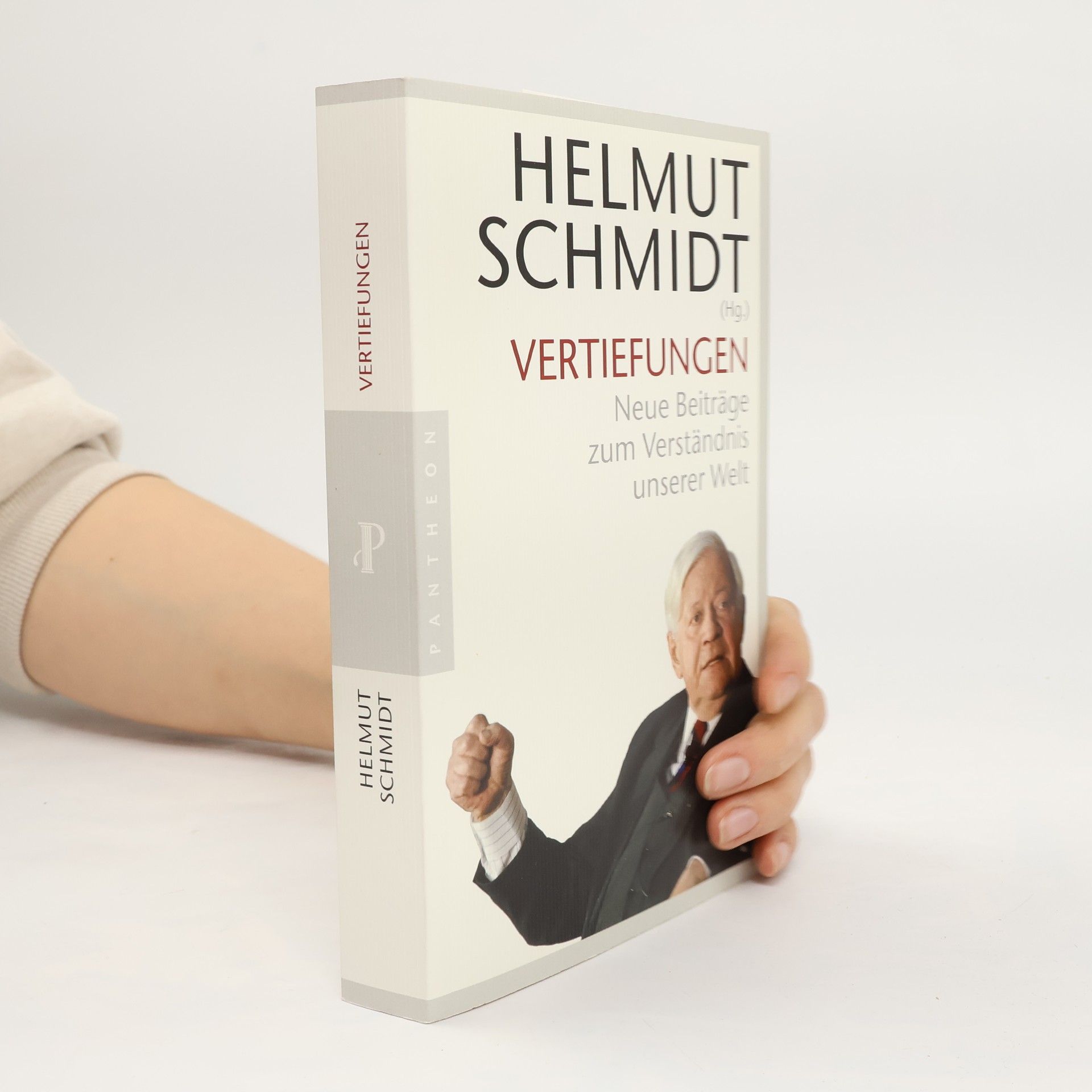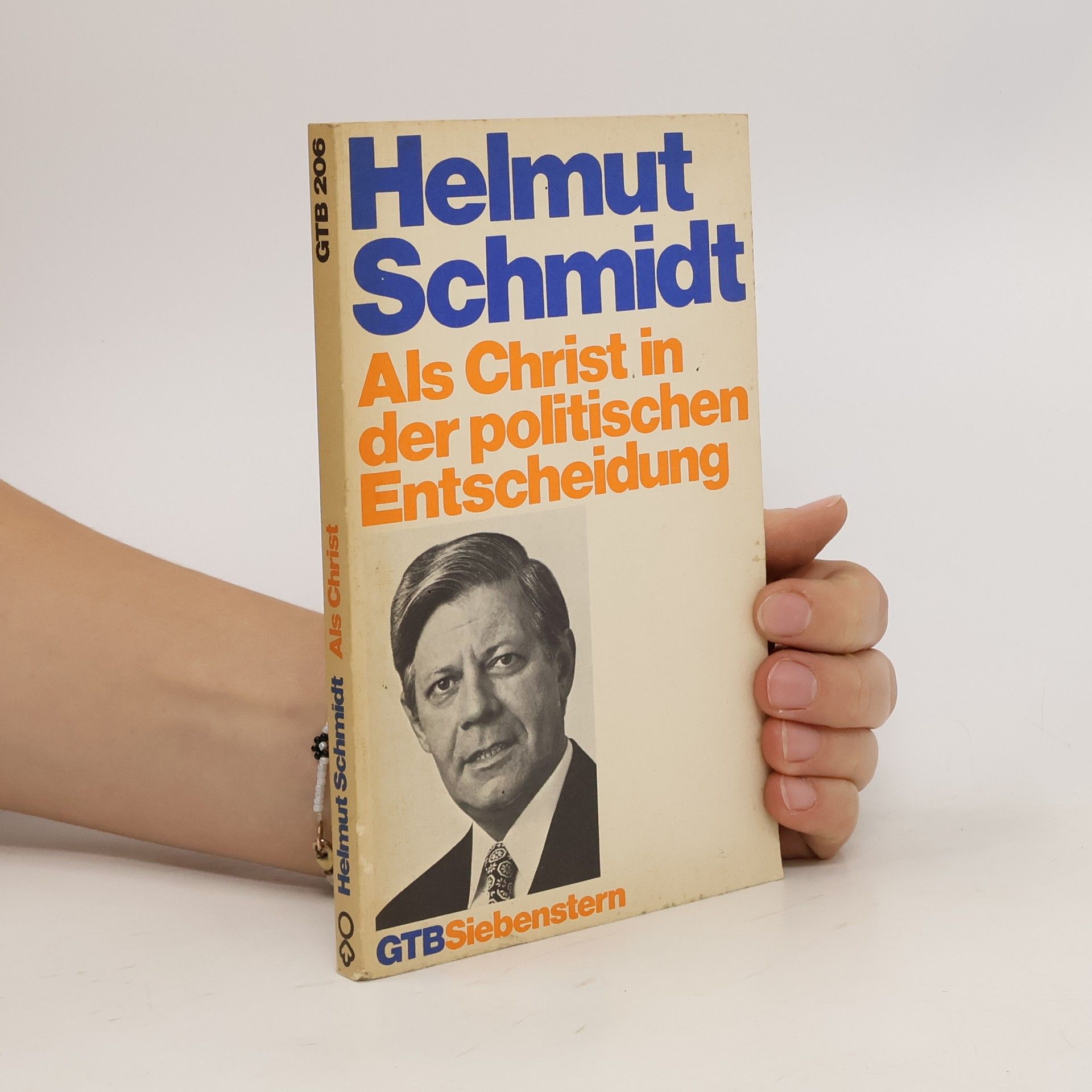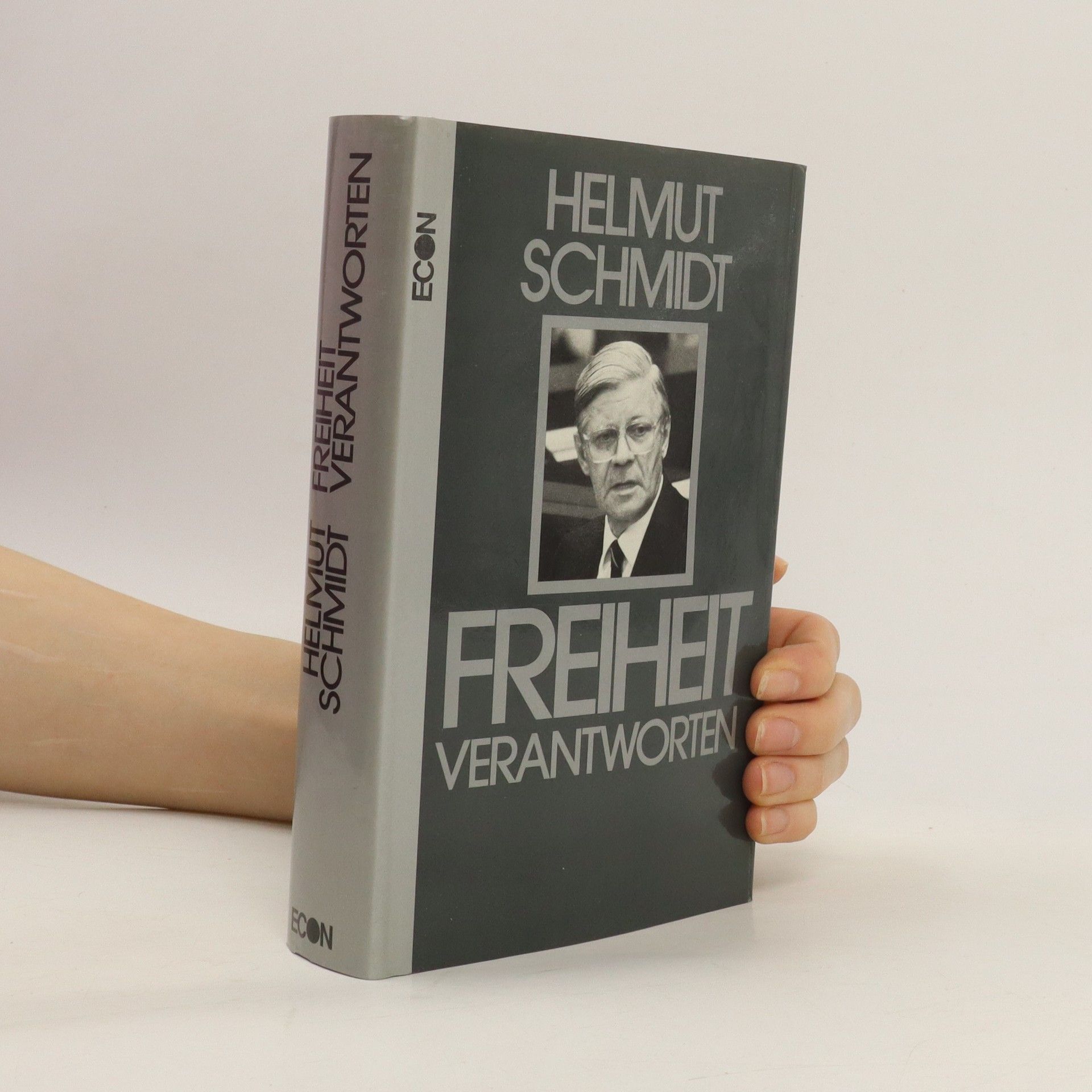Politický testament bývalého německého kancléře představuje evropské perspektivy i možná ohrožení na prahu 21. století. Testament se soustřeďuje na čtyři zásadní celky, v nichž jde jednak o nové světové problémy související s globálním kapitalismem, dále nebezpečná rizika a protichůdné zájmy Evropy a Ameriky (způsoby řešení balkánského konfliktu i řady jiných), pozvolný rozvoj EU a otázky týkající se kulturní identity Evropanů, fenoménu Ruska ve smyslu kulturním i politologickém, islámu, duchovní podobou Evropy v epoše kapitalismu, rolí národních států a úvahami, zda nová tvář Evropy splní očekávání svých občanů. V závěru autor shrnuje dvacet osobních vyznání (tezí) k daným i nadcházejícím skutečnostem. Věcné a střízlivé podání podtrhuje závažnost textu.
Helmut Schmidt Knihy
Helmut Schmidt byl německý sociálnědemokratický politik, který působil jako kancléř západního Německa v letech 1974 až 1982.


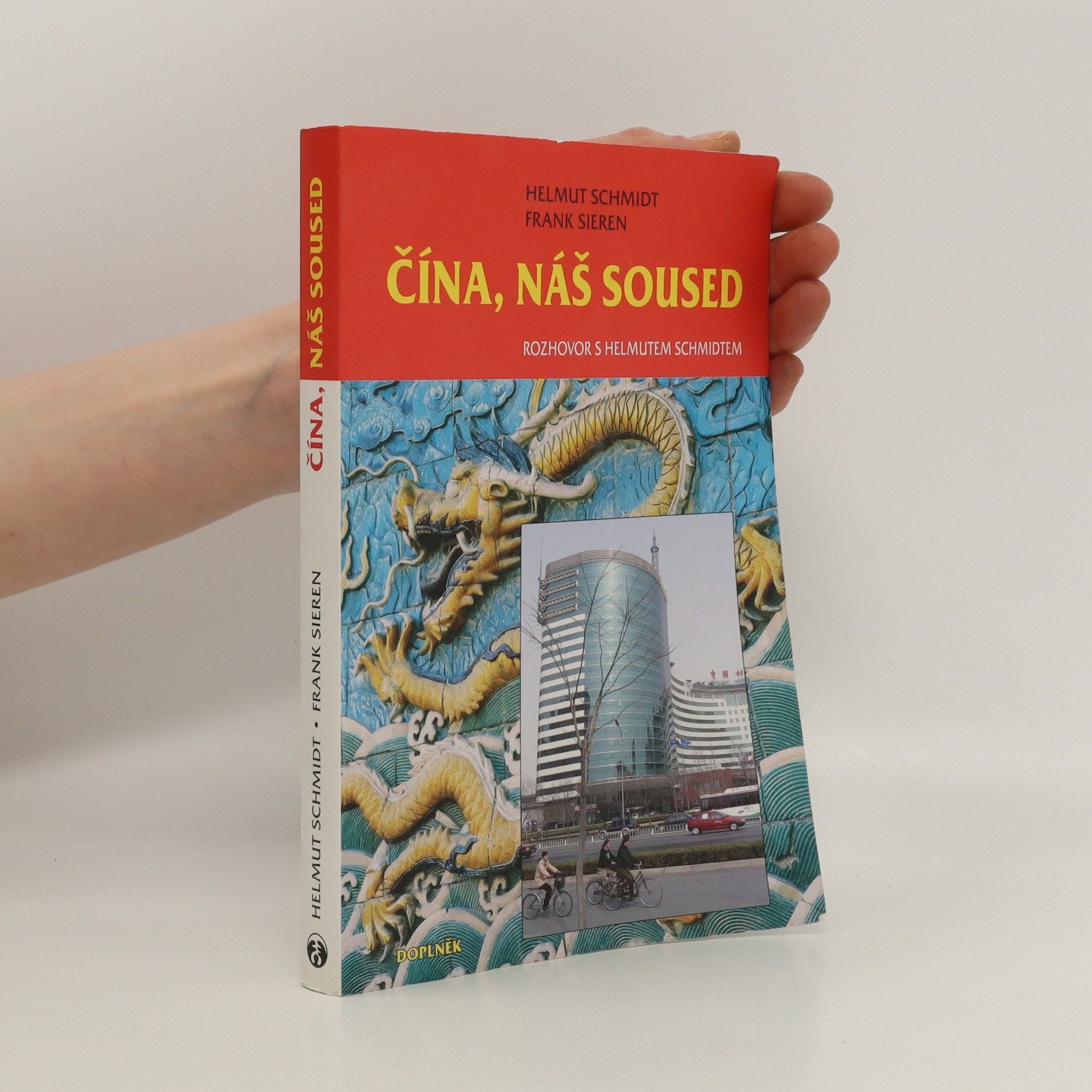

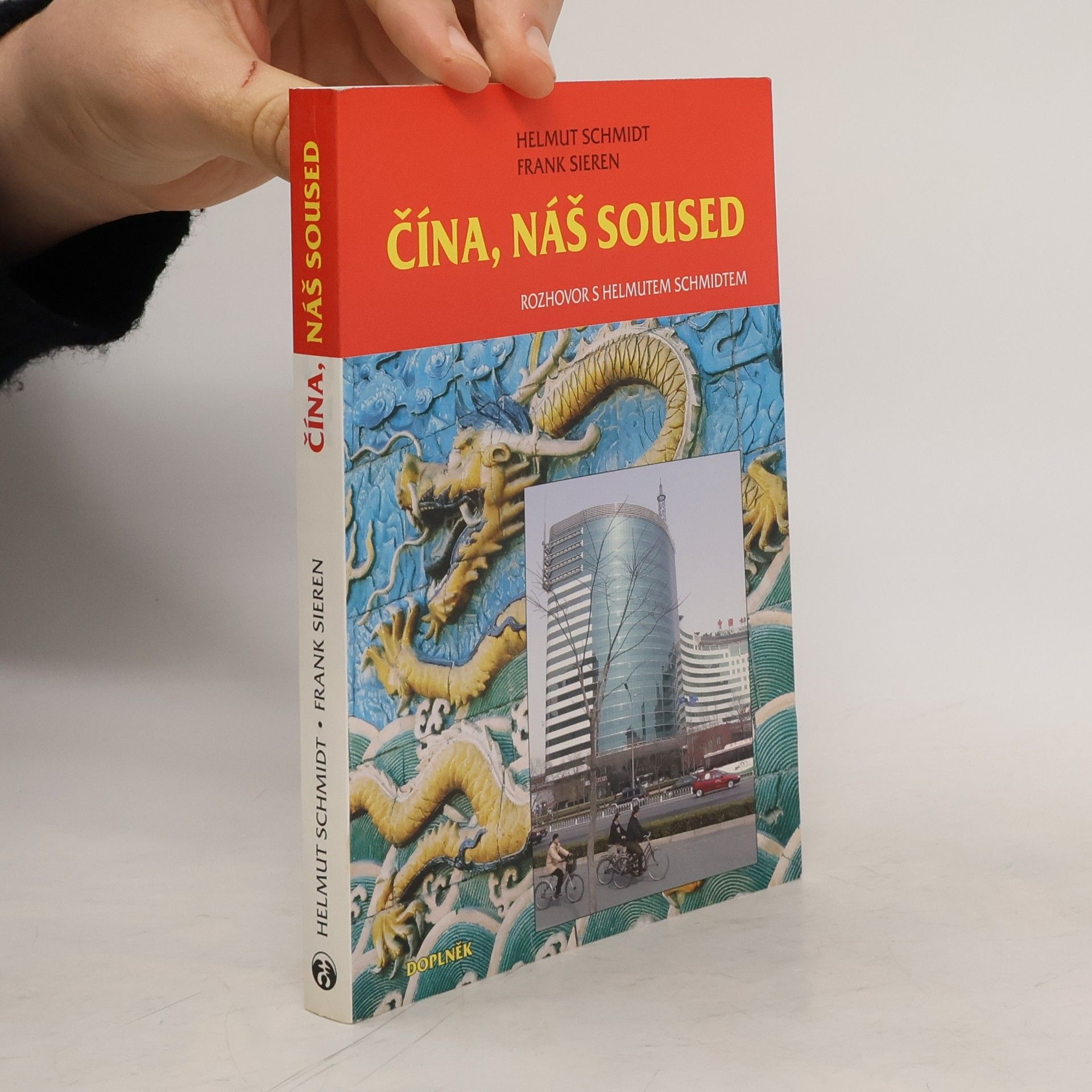
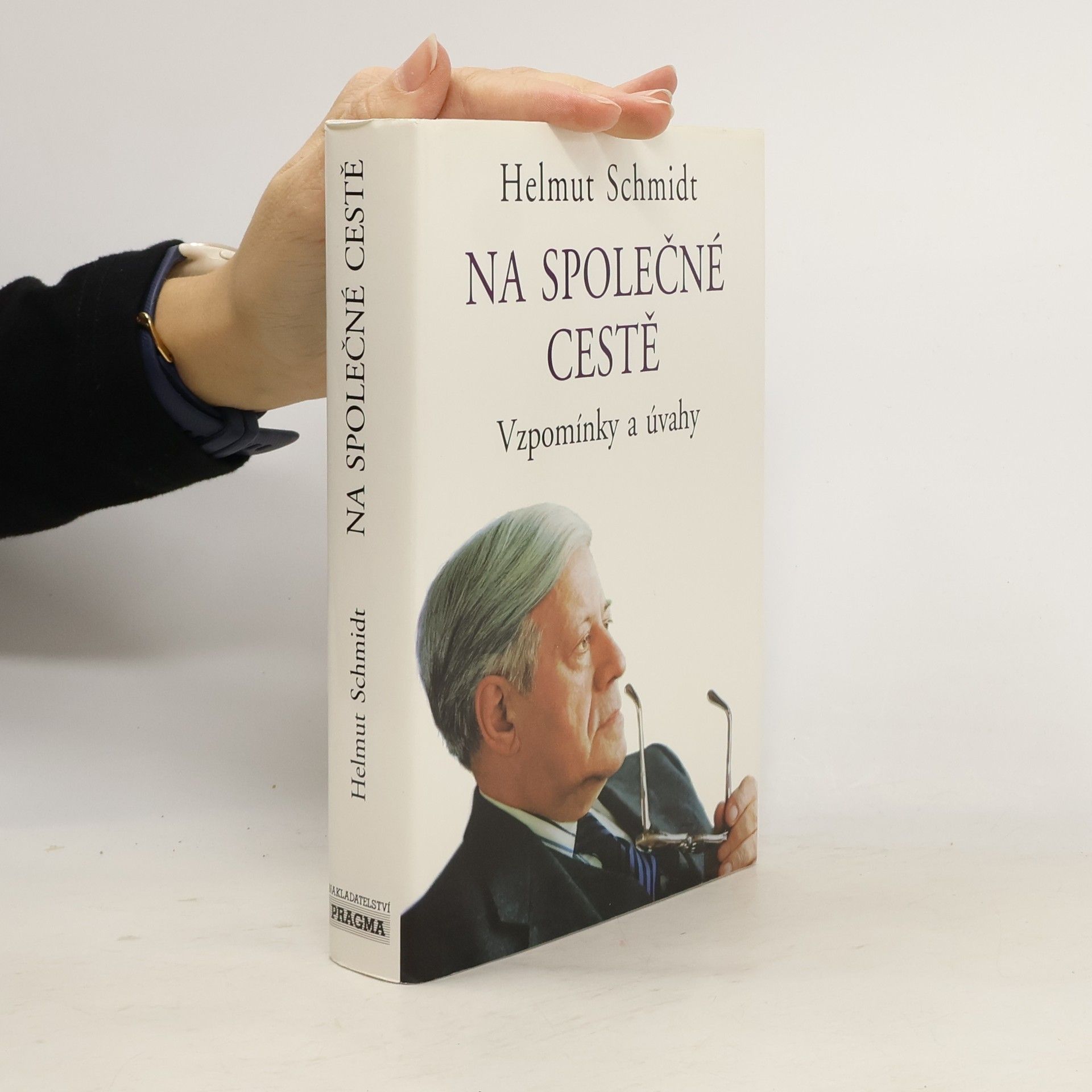

Na společné cestě. Vzpomínky a úvahy
- 575 stránek
- 21 hodin čtení
Vzpomínky německého politika nemají obvyklou chronologickou formu, jedná se spíše o seskupení úvah a osobních pocitů.
Kniha nabízí jedinečný způsob, jak poznat soudobou Čínu – prostřednictvím rozhovoru, který vedl jeden ze špičkových německých odborníků na moderní Čínu, novinář Frank Sieren, s bývalým německým spolkovým kancléřem Helmutem Schmidtem. Schmidt navštívil Čínu poprvé v roce 1975. Čína – její bohatá kultura, pestrá minulost i rozporuplná přítomnost – ho fascinovala. Schmidtovým prostřednictvím získáváme možnost bezprostředně poznat přední čínské politiky, s nimiž jednal, včetně Mao Ce-tunga, Teng Siao-pchinga a Ťiang Ce-mina. Bývalý kancléř objasňuje zahraničněpolitické zájmy i vnitřní problémy Číny. Chce pochopit zásadní proměnu, kterou Čína v nedávné minulosti prodělala. A na závěr neschází ani doporučení, určené především Evropanům – abychom tuto zemi lépe poznali a porozuměli jí.
Mein Europa
- 366 stránek
- 13 hodin čtení
Helmut Schmidt hat das Europa der letzten Jahrzehnte maßgeblich mitgeprägt. Die Artikel und Reden, die dieser Band versammelt, zeugen von dem vielfältigen Engagement eines Europäers aus Leidenschaft. Jetzt steht Europa am Scheideweg: Dies ist auch Thema des Gesprächs zwischen Helmut Schmidt und Joschka Fischer, mit dem das Buch endet. Die ausgewählten Texte, in einem Zeitraum von über sechzig Jahren entstanden, schlagen den Bogen von den frühen Nachkriegsjahren über die langwierige Diskussion um die Errichtung einer europäischen Wirtschafts- und Währungsunion bis zur gegenwärtigen Krise. Sich zu Europa bekennen, hieß für Helmut Schmidt immer auch, Opfer zu bringen - und den Bürgern den Sinn dieser Opfer zu erklären. Heute fehlt es vielfach an Verständnis dafür, dass die europäische Integration zu den wichtigsten Interessen der Bundesrepublik gehört, die Stimmung droht zu kippen. Das Zusammenwachsen der Völker Europas war aber von Anfang an ein Geben und Nehmen, und diejenigen, die über die Jahre am meisten davon profitierten, waren wir Deutsche. Der vorliegende Band wirbt für die Fortsetzung der Europäischen Union - im Augenblick ihrer tiefsten Krise.
Freitagabend im Hause SchmidtSeit 25 Jahren treffen sich in Helmut Schmidts Haus die Mitglieder der »Freitagsgesellschaft«: ein illustrer Kreis prominenter Persönlichkeiten aus Kunst, Wissenschaft, Politik und Wirtschaft. Im Mittelpunkt des jeweiligen Abends steht ein Vortrag. Helmut Schmidt hat für dieses Buch einige der interessantesten Beiträge der letzten Jahre ausgewählt. Die Treffen der Hamburger »Freitagsgesellschaft« sind heute schon legendär. Politiker und Unternehmer, Künstler, Ärzte und Wissenschaftler unterrichten sich gegenseitig über die neuesten Entwicklungen auf ihrem jeweiligen Gebiet und diskutieren Fragen des öffentlichen Wohls. Durch die von Helmut Schmidt vorgelegte Auswahl ihrer Vorträge gewinnen wir vertiefende Einsichten in unterschiedlichste Wissensbereiche. Ob Wolf Singer sich mit den Grenzregionen von Gehirn und Bewusstsein beschäftigt, Siegfried Lenz uns von seiner Faszination durch Märchen erzählt, Hans Küng die drei abrahamischen Religionen vorstellt oder Richard von Weizsäcker die offene deutsche Frage nach zweihundert Jahren endlich gelöst sieht – hier schreiben herausragende Persönlichkeiten über spannende Themen, die uns alle angehen und die zum Nachdenken über den Zustand unserer Gesellschaft und die Zukunft unserer Welt einladen.
Jahrhundertwende
- 250 stránek
- 9 hodin čtení
Am Ende des Jahrhunderts geht der Blick zurück und nach vorn. Was ist, was bleibt und was kommt auf uns zu? Was erwartet Deutschland und die Welt im 21. Jahrhundert? Helmut Schmidt, Deutschlands engagiertester elder statesman, sucht im Gespräch mit den Großen der nationalen und internationalen Politik nach Antworten. Seine Dialogpartner sind Staatsführer und Vordenker, die die Politik der letzten Jahrzehnte bestimmt haben: Michail Gorbatschow und Shimon Peres, Giscard d'Estaing und Henry Kissinger, Ralf Dahrendorf und Helmut Kohl. „Jahrhundertwende“ ist die Bilanz eines engagierten politischen Lebens. Aus ihren Erfahrungen entwickelt Helmut Schmidt und seine Gesprächspartner Perspektiven für das neue Jahrhundert.
Freiheit verantworten
- 407 stránek
- 15 hodin čtení
